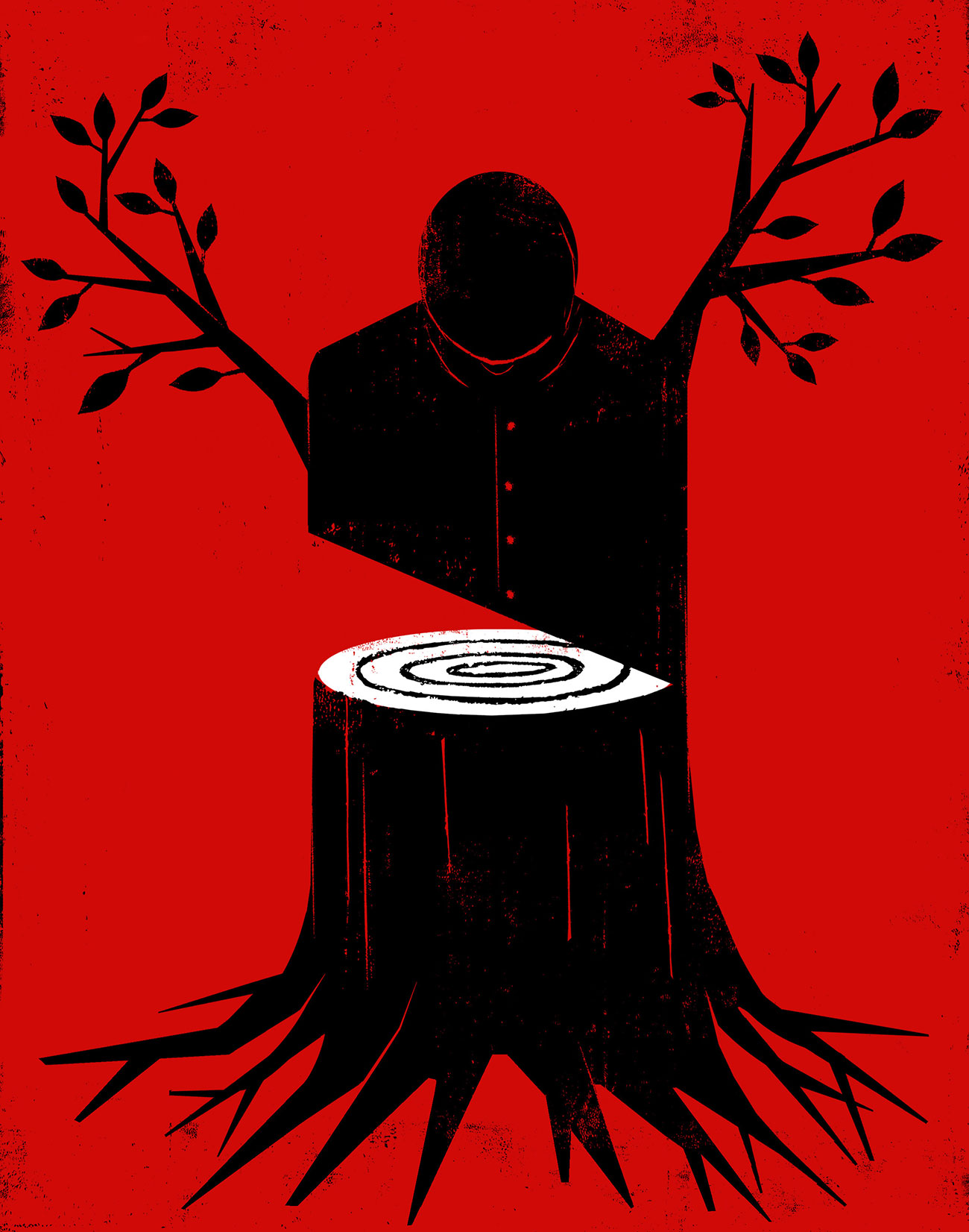The fate of the DACA program has been on the table one week and off the next for the past several months. But whatever the outcome of the issue, the ongoing battle will bring into the political arena an array of elements that play into the nation’s political processes, from interparty disputes to intraparty fights, legislative poison pills, the courting perhaps of allies and foes, the role of religious voices with a stake in the issue, and, not least, the future of young people with family members who may face deportation depending on the outcome.
For anyone trying to follow the fate of DACA — whether an interested party, a political observer or an actual undocumented immigrant whose fate is tied up in it— the past few months have been a series of reassurances, rollercoasters and heartbreaks.
Is DACA — which stands for Deferred Action for Childhood Arrivals and offers an amnesty for young people brought into the country as children — going to expire early next year? Will President Donald Trump, who campaigned to rescind the policy on “Day One,” win out? Or will the same president — the son of an immigrant mother (from Scotland) who twice married immigrants (both from Continental Europe) — respond to the rising support for the young Dreamers and decide the issue is not worth pushing? Will immigrants-rights groups, liberal activists and the Democratic Party — solidly united behind DACA — get their way and preserve or expand the policy? Or will a hardline of the Republican leadership, helmed by Attorney General Jeff Sessions and driven by a wave of populist nationalism, kill DACA and send 800,000 young people back into the shadows or to nations they know only from childhood and family photos?
Right now, no one knows for sure, and there is no consensus on the matter. Even political and legal experts are flummoxed by a complicated balance of power and an erratic president who takes a strong line against immigration one minute and speaks warmly of hammering out a deal with Democratic leaders the next.
Among the pessimists is Richard Fox, LMU professor of political science and an expert on the United States Congress. “We now live in a world where it’s hard to predict anything,” he says. But it’s difficult to imagine, he says, a GOP-controlled Congress passing a law that would be a great gift to the Democrats and to the immigration lobby. “I wouldn’t be surprised if nothing happens, and the law just goes away, because the government is so dysfunctional.”
Others see a devil’s bargain. “This is speculation on my part,” says Kathleen Kim, professor at Loyola Law School and a longtime immigration advocate, “but it may be that when [the president] comes to the six-month deadline for enforcing DACA, he will be uncomfortable deporting Dreamers. So, he may be trying to find a way out.” Will he trade DACA for a border wall? Will he turn a proposed DACA law into a poison pill the Democrats will never vote for?
Lately, the odds favoring DACA registrants have grown grimmer. “After supporting a DACA deal with Democratic leaders Chuck Schumer and Nancy Pelosi, the President faced blowback from conservative Republicans in Congress,” said Michael Genovese, professor of political science and president of the Global Policy Institute at LMU. “Internal pressure in the White House from [senior advisor] Stephen Miller meant Trump backed away from his promise and all but exploded the deal he had just endorsed. This reflects the president’s ongoing confusion over the nuances of both policy and process, as well as his lack of experience in politics: If you can’t take the president at his word, you won’t be able to make the deals necessary to move the machinery of government.”

The future of the policy, then, is anything but secure. However it falls, for now the million-or-so young people eligible for DACA — estimates set the number at about 1.2 million, with approximately 400,000 not yet enrolled — are living in limbo.
The policy now known as DACA was announced by President Barack Obama in spring 2012 and enacted that summer. It became policy not through the usual Congressional process but by executive proclamation, leading some, especially on the Right, to denounce it as executive overreach.
Polling over the past year shows that approval for DACA crosses party lines, sometimes topping 70 percent.
DACA is not an amnesty law like those passed before by the major parties. DACA applies to people brought to the country before they turned 16 and requires that they are either in school or have graduated from high school or attained an honorable discharge from the military. It also requires that they keep clean — no trouble, no felonies. Even a bad misdemeanor is enough to disqualify someone. And Dreamers (as they’re called because of the DREAM Act, a bill first introduced in 2001) need to register and pay $495 apiece for the privilege. In exchange, they get many benefits of citizenship.
“It’s complicated, costly and frightening,” says Cecilia González-Andrieu, associate professor of theological studies who works with about 20 DACA scholarship students at LMU. “They had to turn in all the information about themselves, be fingerprinted. … They’re the most extremely vetted group of people in the country right now.”
Polling over the past year shows that approval for DACA crosses party lines, sometimes topping 70 percent. But while the nation has lined up largely behind DACA, “the test is what people on the Republican side are thinking,” says Genovese.
That issue is more complex than most, Genovese says: The Tea Party, right-wing and nationalist side of the GOP leadership generally opposes immigration of almost any kind. But moderates may not line up. “There are a lot of establishment Republicans looking for a way to kick Donald Trump in the behind,” he says. And the president has put himself in a difficult position, especially if Congress hands him a bill extending or codifying DACA. “What does Trump do — does he veto it? He’s an amateur, and that’s what amateurs do — they make rookie mistakes. His base is all he’s got, and you’ve got to give them red meat, even if it’s rancid.” He may be strategically trapped.
So, while it’s hard to predict what Congress or the president will do, among many Catholics, including Jesuits and their universities, a consensus has taken shape. Given the wide ideological range covered by U.S. Catholics — who vary from those mourning Justice Antonin Scalia to the remnants of Catholic socialism — it’s a rare convergence.
The statement about DACA by Pope Francis, who emphasized that “the family is the cradle of life and it must be defended as a unit,” is one of the most prominent endorsements. As the controversy was cresting in early September, the university’s founding religious orders stood up strongly behind the policy, as has LMU itself. Timothy Law Snyder, Ph.D., LMU president, wrote to the university community in support of LMU’s DACA students: “LMU stands unequivocally in support of all our students. We renew our resolve to protect our undocumented students to the fullest extent of the law.” The Association of Jesuit Colleges and Universities has done the same. Archbishop José H. Gomez, of the Diocese of Los Angeles, called the rescindment a “national tragedy and a moral challenge to every conscience.”

Allan Deck, S.J., Distinguished Scholar of Theology and Latino Studies, says the widespread support for DACA is not a surprise. “It’s embedded in the Church’s teaching and in Biblical teaching on human dignity and the rights of migrants. It goes back to the Hebrew scriptures and reflects basic principles of decency. God hearing the call of immigrants — the heart of the story of Exodus — is a key moment in history. All three Abrahamic religions are rooted in this; it’s got a great pedigree.”
Deck says it’s important that working out DACA and the larger patchwork immigration policy take into account a wide range of perspectives, including those who believe in tight borders. He wants the debate to be, as Church teachings prescribe, a dialogue rather than a monologue.
But he sees widespread agreement about DACA itself. “This is not a liberal or conservative issue,” Deck says. “It’s about human rights, dignity and fairness.”
González-Andrieu says support for the vulnerable is a bedrock Church teaching. “It’s the most basic tradition of Christianity — Jesus left very clear instructions on how to treat the poor and the hungry and the sick.” Support for DACA, she says, “gives us a chance to flex our mission as a Jesuit and Marymount institution, with the love of God that issues as a love of the neighbor and care of the young.”
Still, between partisan gridlock and a pres-ident whose positions swing widely, it’s difficult to know how things will shake out. “There’ll be a press at the end to get something done,” Fox says. “And a big push by the activists and the Democrats, ‘Mr. President, you said you’d do something.’ Then, I don’t know, it’s 50–50. Do they hammer out an agreement? Then the Democrats are in the terrible position of voting for [border] wall funding?”
Both compassion and hatred, Kim says, play roles in American politics these days. “The folks who supported Trump the most strongly during the election were hardline anti-immigrant people,” she says. If they let DACA survive, it could come with harsh measures. “This may be the trade-off that immigration restrictionists have been waiting for — something far more draconian than we have now.” The Dreamers will have become political footballs. And informed speculation includes concerns for Dreamers’ family members — the parents and others who brought the children into the country may not be safe from deportation or persecution. This puts the Dreamers — even if their own status is forgiven — in a deeply fraught position.
But González-Andrieu thinks it’s important that LMU students, whatever their immigration status, understand the university’s position, which is one of unambiguous support. “We’re all committed to them,” she says, “DACA or no DACA.”
Scott Timberg is a freelance culture writer and author of “Culture Crash: The Killing of the Creative Class.” He was a Los Angeles Times staff writer for six years, and his writing has appeared in The New York Times and Los Angeles magazine. His “Middle of Nowhere,” a feature story on the deterioration of the U.S. middle class, appeared in the winter 2016 issue of LMU Magazine. Timberg’s ArtsJournal blog is called CultureCrash. Follow him on Twitter @TheMisreadCity.
This article appeared in the winter 2017 issue (Vol. 8, No. 1) of LMU Magazine.
